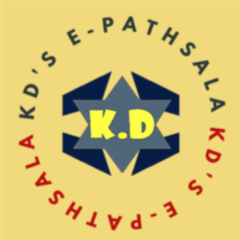As an educational agency the home, the school and the state are most important. But there are some socio-cultural organization in the modern era which exert influence on the educational development of the individual. Education is nothing but social interaction. The different mass communication media help to promote such social interaction. Hence these are also regarded as agencies of education.
According to Josephine Brew,- The club at its best creates a society of personalities with a community sense, which is the essence of good citizenship… We are not concerned with the making of ‘good club members’ or ‘well-organized youth groups’, but with a much wider issue, the making of good citizens. This can only be done in a society where each member is important, where each one is given a chance to contribute something to the life of the group – the leader no more and no less than the member. It is for this reason that self-government is so important in club work.
In each society there are some small organization and associations. These organization can fulfill the
socio-cultural needs of individuals. A club helps the process of education in
various ways. These are:
- Make new friends- You’ll meet people who have similar interests to yours. You may also meet people from different backgrounds who you may not have the opportunity to interact with before.
- Build respect and learn teamwork- Teamwork and respect are two important life-skills that can carry you through life. By joining clubs or teams, you’ll learn to work together towards a common goal, learn respect for coaches, leaders, yourself, and one another.
- Gain self-confidence- Completing a special project, playing a difficult piece of music, or being a valuable member of a team can help you gain self-esteem. Perhaps you’re not as academically talented as some other students at school; by participating in a club or other activity, you have the opportunity to excel in something you enjoy and are good at.
- Relieve stress- Many clubs and activities take place in a relaxed environment, so you have a chance to unwind and do things you like after a busy day at school.
- Learn real-world skills- Many extracurricular activities provide a chance to learn real-world skills. Joining the school newspaper gives you experience at writing timely news stories; the debate club teaches the art of persuasion and negotiating skills; the robotics team helps develop problem-solving skills using creativity, computers, and technology.
- Develop time management skills- Juggling school, homework, and family life can be challenging. Joining clubs and other activities helps you learn the importance of planning and prioritizing.
- Avoid risky behaviors- Studies show that students who participate in after-school activities have greater expectations for the future and are more interested in school than their peers. Having a greater sense of purpose and more self-esteem gives you a reason to say “no” to risky behaviors. Students who participate in after-school or community activities are more likely to succeed at school.
- Intellectual Development- The association sometimes organizes lectures, debates, seminars, discussion & travels. These help in the intellectual development of their members and in the acquisition of varied educational experiences.




